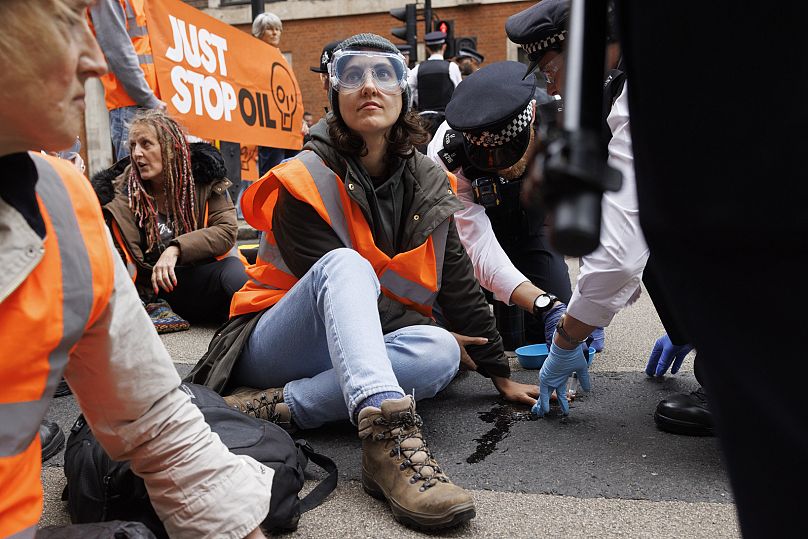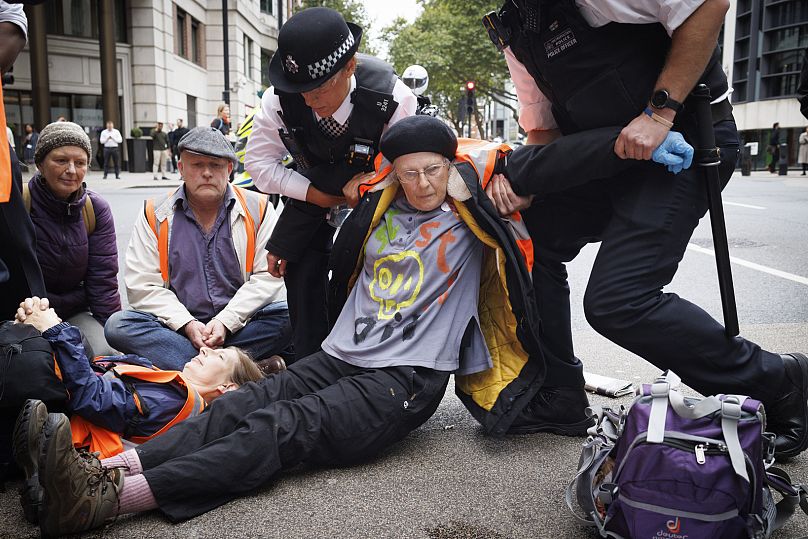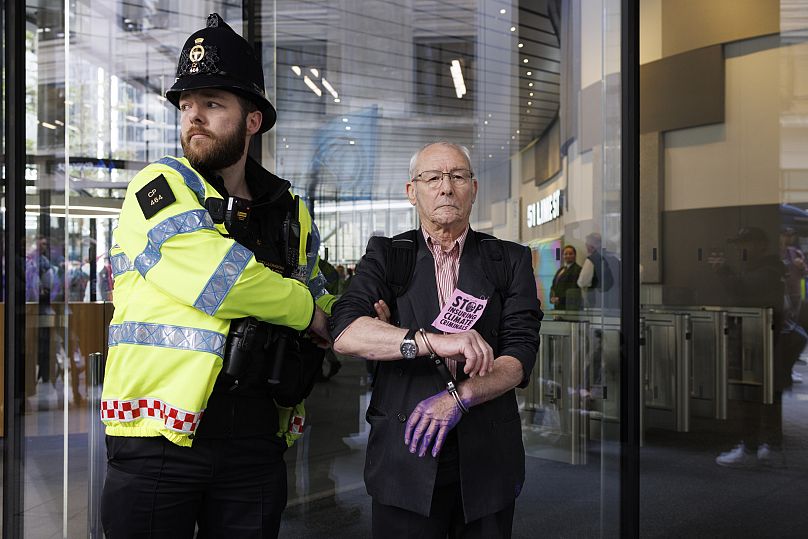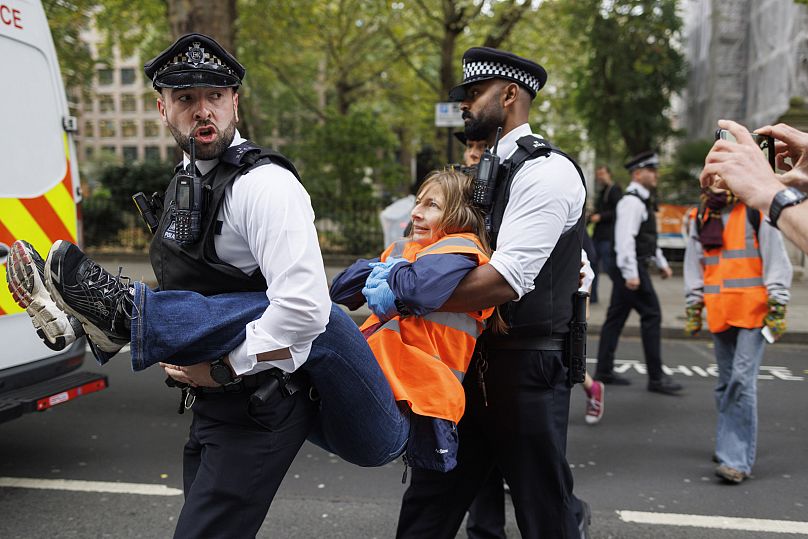Climate clampdown: Research shows UK and Norway most likely to arrest protesters
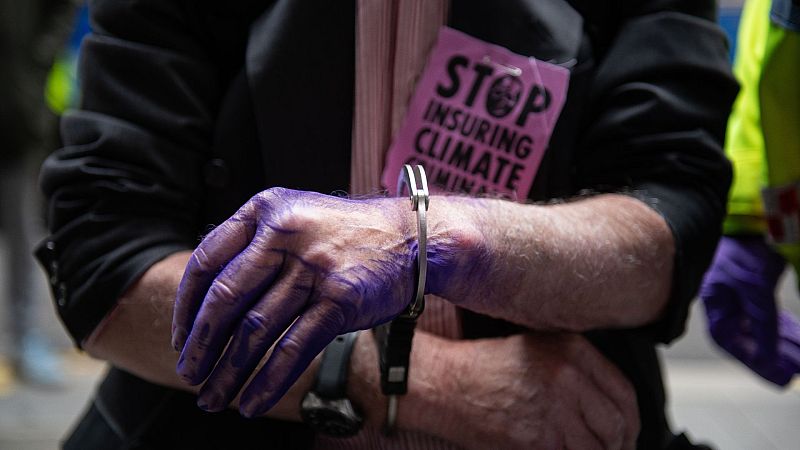
Climate activists protesting in the UK are three times more likely to be arrested than the global average. That’s according to new research from the University of Bristol which has assessed the responses in 15 countries to climate protests and activism.
Of the nations included in Dr Oscar Berglund's study, only one had a higher arrest rate than the UK. Australia saw one in five (20.1 per cent) eco-protests leading to arrests, compared to 17.2 per cent in the UK. The international average rate is 6.3 per cent.
Other countries taking a tough stance on environmental protests include Norway at 14.5 per cent, the USA at 10 per cent and Turkey at 8 per cent.
The findings come amid heightened concerns for the right to protest against a backdrop of legislative reforms that make arrest and criminal charges easier to uphold.
Where the world is toughest on climate protests
While the UK, Australia and Norway have the highest arrest rates for climate protesters, they also have the highest proportion of climate protests. The report showed that, in Britain, almost 17 per cent of all protests are related to climate issues. In Norway, it is 15 per cent of all protests and 13 per cent in Australia.
Germany has almost as many climate protests as the others on the list at 13 per cent. However, the arrest rate in Germany is much lower, at just 4.1 per cent. France, too, seems more willing to permit peaceful protests, with just 3.2 per cent of actions leading to arrests being made.
However, in the countries with the very lowest arrest rates, researchers also found an increased incidence of police violence. For example, Peru, which has an arrest rate of just 2 per cent, had the highest incidence of police violence at 6.5 per cent.
Also of concern are the number of killings linked to climate protests, tracked by Global Witness. Between 2012 and 2023, they logged 401 protest-related deaths in Brazil, by far the worst country for such incidents. The Philippines (298), India (86) and Peru (58) also had concerningly high numbers of killings.
7,000 climate protesters arrested in UK in five years
According to Global Witness, more than 7,000 climate protesters have been arrested in the UK since 2019. A freedom of information request to London’s Metropolitan Police showed a record of 6,252 protest-linked arrests in London alone between April 2019 and March 2023. The majority of these arrests were related to actions by environmental groups.
The group most likely to be arrested were Extinction Rebellion (XR), with 4,465 arrests by the Met in the three year period. Just Stop Oil members were arrested 1,137 times. Almost 3,000 individual arrests were made over just two XR protests in 2019, first in April and then in October.
An Extinction Rebellion spokesperson told Euronews Green: “People who are concerned about what’s happening with climate and nature should know that the best way to deal with anxiety and grief is to take action. We design our actions so that everyone is able to participate - whether they feel comfortable with the risk of arrest or not.”
Two contentious laws in the UK have facilitated many of these arrests. The Public Order Act 2023 and the Police, Crime, Sentencing and Courts Bill 2022 vastly expanded police powers to stop protests from taking place, and to arrest those who do engage in activism.
For example, ‘locking on’ - attaching oneself to objects or people - is a new offence under the Public Order Act, punishing offenders with up to 12 months in prison or a fine. Other changes include increased powers of stop and search, harsher sentences for protest-related offences and the ability to arrest individuals who are causing a ‘serious disruption.’
Jodie Beck, policy and campaigns officer at human rights group Liberty, criticised the "draconian legislation" changes, telling Euronews Green,
“With new measures outlawing tactics like locking-on and slow walking, alongside police powers to restrict noisy protest, it is of no surprise that the report out this week has found climate activists in Britain are three times more likely to be arrested than in other nations. This is a shameful reflection of the state of our democracy."
These changes are echoed in other countries around the world. Between 2019 and 2023, Australian territories brought in five new acts that increased police powers to stop protests. France also introduced two significant laws: the Loi Anti-Casseurs in 2019 and the Loi Contre le Séparatisme in 2021, both of which expand punitive powers against protesters.
Ignoring the root of the problem
The University of Bristol report found that occurrences of climate protests and general environmental protests had increased across the study period (2012-2023). There was a sharp rise in climate protests particularly towards the end of the 2010s.
The researchers concluded that the responses to such activities are markedly different between nations, and the approach to policing and criminalisation of protest varies greatly too.
However, they note, the trend for criminalising and repressing protest activities has become more apparent around the world.
“Our concern is not with the police who are ultimately given orders by the Home Secretary and who enforce legislation written by parliament,” noted Extinction Rebellion’s spokesperson.
“We are more concerned with the governments who choose to take the authoritarian path of limiting the rights of people to protest, rather than taking the urgent action required to keep their populations safe from the breakdown of climate and nature.”
Researchers, NGOs and campaigners alike argue that rather than tackling the issues that are provoking protest action, governments are more focused on punishing dissent.
“Governments should know that activists will not be deterred because what is at stake is more important than any price we pay for taking action,” added XR’s spokesperson. “They should also be warned that when they do not respond positively to peaceful actions, history shows people turn to other methods and tactics.”
Today


